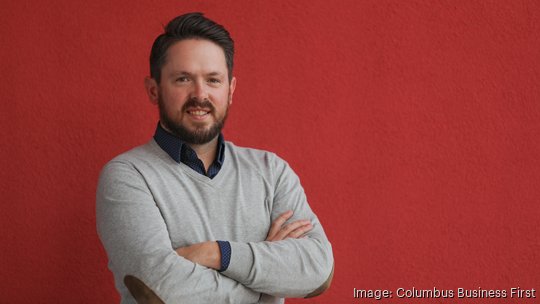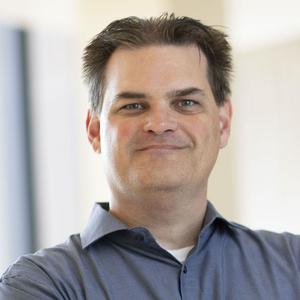
A new group of Columbus, Ohio, angel investors aims to support very early tech startups throughout the state — while providing an avenue for traditional investors to dip a toe into the VC pool.
Ohio Angel Collective has grown to 77 members across more than a dozen states since its late September launch, with dozens of prospects, organizers said.
“What we really, really want to focus on is a very low-friction opportunity to join, whether you’ve been an angel investor 20 years or haven’t made a single angel investment yet,” said co-founder Will Zell, a serial entrepreneur with a separate venture capital fund.
Zell is a founding partner in the collective with Mike Supeck, who recently stepped down as COO of Columbus-based Apricity Robotics to go full time with the angel group, and Corey Myers, a former partner to a Columbus VC firm who started this month as chief commercial officer for an Indianapolis tech company.
The group aims to grow to hundreds of members over the next five years, providing crucial capital as well as mentorship to very early startups — as the term "angel" implies.
“We want to be that conduit for people who have been sitting on the sidelines wanting to invest in startups … but haven’t had that organization coaching them on how to come in,” Supeck said.
The group would focus mainly on Ohio-based startups, with a fairly broad focus of tech, tech-enabled services and some consumer packaged goods. It could invest in an out-of-state company in a partnership with an Ohio VC fund.
Ohio Angel Collective intends to invest a minimum $150,000 in a given startup, which could grow over time. The three founders and Zell Capital's Tom Schoger do the initial screening before choosing founders to pitch to the larger group.
Some of the first members are entrepreneurs who have had previous startups acquired and want to coach a new generation of founders, Supeck said.
Investors must be accredited by the U.S. Securities and Exchange Commission — generally based on a net worth of $1 million or more besides a house, or $200,000 in reliable annual income.
The collective would create a special purpose vehicle for each startup, and members would decide if they want to join that particular investment and at what level.
"These are financial investments into financial vehicles," Zell said. "The expectation is it delivers a return."
But along with the return comes the reward of helping a new company make its first hire, or other more tangible results than watching a stock ticker.
The collective fills a gap left by the Columbus-based Ohio TechAngel Funds, once the largest North American group of investors in early-stage tech startups. That group had a different model, with members raising a large fund that in turn backed startups. The fifth and last fund launched in 2016.
The Ohio ecosystem's challenge was bigger than missing OTAF, Zell said. Individual cities have entrepreneurial support centers, but there's not a clear statewide one-stop for startups to find introductions, investors and other support – a "super early" network as proactive as the one in Silicon Valley.
"We want to make an obvious place for startups, no matter where you are in the state," said Zell, who lives in his hometown of Bellefontaine.
The group has already formed partnerships with groups such as Rev1 Ventures, JumpStart and Loud Capital.
"There’s just so much potential when you look across the state … great entrepreneurs building companies they’re trying to get off the ground," Zell said. "They can't to go a bank, and might not have the network of ‘friends and family’ (wealthy enough to invest).
"You have to have that earliest most foundational level of capital."
Who are the collective's leaders?
Zell is founder and CEO of Columbus-based Zell Capital, which this spring converted to a traditional VC firm raising from accredited limited partners. Zell had to shelve the original "access fund" model, opening private markets to the non-wealthy. It had debuted during the spikes in interest rates, chilling investor interest, while SEC rules hampered effective marketing.
He also is co-founder and executive chairman of AssetWatch, a fast-growing Westerville company that makes wireless sensor systems for preventative maintenance in manufacturing.
Supeck founded a startup while a student at Miami University — it didn't work out, but he caught the bug. After graduating, the software engineer joined Columbus IT firm Enzee as the first employee before going to Apricity this year.
It took more than a year for Enzee to raise a $1.5 million seed round.
"That level of difficulty I thought was unnecessary," Supeck said. "Even though it was a struggle, I enjoyed it in a weird way."






